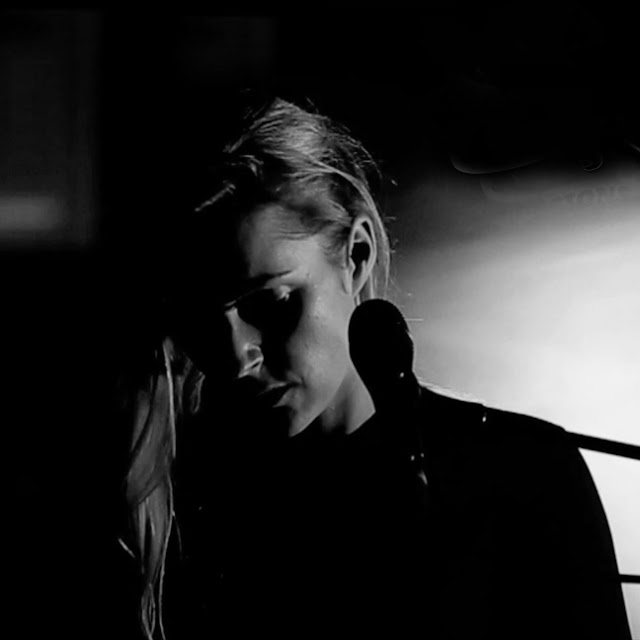Agnes Obel ...
'' Pure, austere, and remarkably poised singer/songwriter from Denmark with a penchant for melancholy atmosphere...''
Danish singer/songwriter Agnes Obel, born Agnes Caroline Thaarup Obel October 28, 1980, took up the piano at a very young age, honing her craft amidst the strains of Bartok andChopin emanating from the fingers of her musician mother. She later drew inspiration from the work of Swedish jazz pianist Jan Johansson, and it was between those two worlds that her own sound began to emerge. Citing influences as diverse as PJ Harvey and Claude DeBussy, and drawing comparisons to the likes Ane Brun, Eva Cassidy, and Joni Mitchell, Obel's 2010 debut, Philharmonics, was written (with the exception of a cover of John Cale's “I Keep a Close Watch”), performed and produced by the artist herself. Pure, austere, and remarkably poised, the pristine mix of instrumentals and atmospheric, melancholy balladry, was both a critical and commercial success, especially in her native Denmark, where the record went double platinum.
(Artist Biography by James Christopher Monger)

Deezer
piasrecordings

Agnes Obel LYRICS:
Album: "Philharmonics" (2010)
Album: "Aventine" (2013)
Fuel To Fire
Dorian
Aventine
Run Cried The Crawling
The Curse
Pass Them By
Words Are Dead
Smoke & Mirrors
Arches[Deluxe Edition Bonus Track]
Dorian
Aventine
Run Cried The Crawling
The Curse
Pass Them By
Words Are Dead
Smoke & Mirrors
Arches[Deluxe Edition Bonus Track]
Deezer
piasrecordings
Agnes Obel
Agnes Obel
Agnes Obel
Agnes Obel
Agnes Obel
Agnes Obel
Agnes Obel
Berlin-dwelling Dane Agnes Obel has been racking up the accolades throughout mainland Europe since her platinum-selling 2011 debut, Philharmonics. With the beguiling Citizen of Glass, her third studio long-player, she looks poised to enchant the rest of the world with her dark charms. A classically trained pianist with an elegant and elastic voice, Obel's melancholic chamber pop invokes names like Goldfrapp, Bat for Lashes, and Anna Calvi, but with a succinct aura of Scandinavian refinery. Where her relatively austere prior outings relied largely on piano and strings, Citizen of Glass revels in ghostly electronics and voice modulation, even going so far as to bring in a temperamental, late-'20s monophonic synthesizer called a Trautonium. The string arrangements are more ambitious and the composition style is a bit more opaque, but the ten-track set is unequivocally Obel-esque. Taking its name from the German concept of the gläserner berger, which translates roughly to the glass citizen, Obel explores the idea of transparency in the overshare-heavy digital age. She also grapples with the death of her father and how those two experiences relate to one another, and the results are both elusive and often incredibly moving. The gothic stateliness of "Trojan Horse" -- think Enya by way of Nick Cave -- the elliptical "Golden Green," and the incredibly seductive single "Familiar," the latter of which sees Obel harmonizing with a pitch-shifted, baritone iteration of her voice, all work on multiple levels, doling out liberal amounts of atmosphere, while remaining remarkably earthbound. Obel's penchant for pairing elements of Elizabethan choral polyphony with millennial angst, not to mention her liberal use of spinet and celeste, would seem pedantic in less skilled hands, but there isn't a single moment on the quietly stunning Citizen of Glass that doesn't feel authentic.
AllMusic Review by James Christopher Monger,
http://www.allmusic.com/album/citizen-of-glass-mw0002964067
Agnes Obel
Agnes Obel
Agnes Obel
Agnes Obel
Agnes Obel
Agnes Obel
Agnes Obel
Agnes Obel
Agnes Obel
Agnes Obel
Agnes Obel
Agnes Obel
Agnes Obel
Agnes Obel
Agnes Obel
Agnes Obel
Citizen of Glass
Berlin-dwelling Dane Agnes Obel has been racking up the accolades throughout mainland Europe since her platinum-selling 2011 debut, Philharmonics. With the beguiling Citizen of Glass, her third studio long-player, she looks poised to enchant the rest of the world with her dark charms. A classically trained pianist with an elegant and elastic voice, Obel's melancholic chamber pop invokes names like Goldfrapp, Bat for Lashes, and Anna Calvi, but with a succinct aura of Scandinavian refinery. Where her relatively austere prior outings relied largely on piano and strings, Citizen of Glass revels in ghostly electronics and voice modulation, even going so far as to bring in a temperamental, late-'20s monophonic synthesizer called a Trautonium. The string arrangements are more ambitious and the composition style is a bit more opaque, but the ten-track set is unequivocally Obel-esque. Taking its name from the German concept of the gläserner berger, which translates roughly to the glass citizen, Obel explores the idea of transparency in the overshare-heavy digital age. She also grapples with the death of her father and how those two experiences relate to one another, and the results are both elusive and often incredibly moving. The gothic stateliness of "Trojan Horse" -- think Enya by way of Nick Cave -- the elliptical "Golden Green," and the incredibly seductive single "Familiar," the latter of which sees Obel harmonizing with a pitch-shifted, baritone iteration of her voice, all work on multiple levels, doling out liberal amounts of atmosphere, while remaining remarkably earthbound. Obel's penchant for pairing elements of Elizabethan choral polyphony with millennial angst, not to mention her liberal use of spinet and celeste, would seem pedantic in less skilled hands, but there isn't a single moment on the quietly stunning Citizen of Glass that doesn't feel authentic.
AllMusic Review by James Christopher Monger,
http://www.allmusic.com/album/citizen-of-glass-mw0002964067
Agnes Obel
Agnes Obel
Agnes Obel
Agnes Obel
Agnes Obel
Agnes Obel
Agnes Obel
Agnes Obel
Agnes Obel
Agnes Obel










